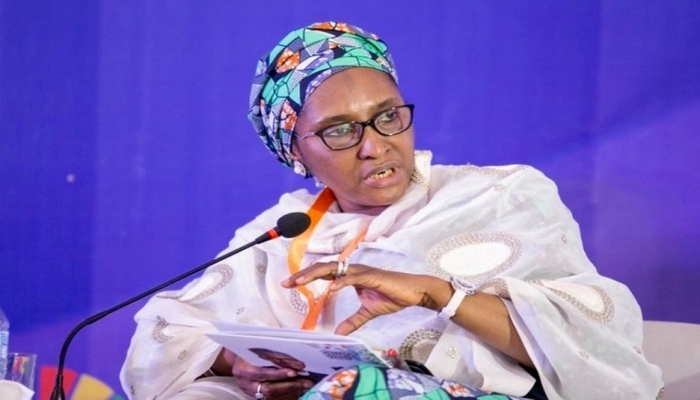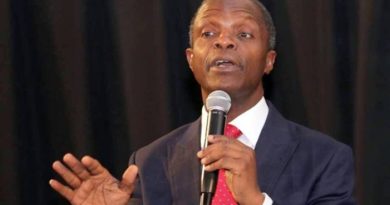2023 Budget: FG proposes N19.76trn, puts deficit at N12.41trn
- may not budget for capital project
- fuel subsidy ends June next year
- promises not to default on debt servicing
The Minister of Finance, Budget and National Planning, Mrs Zainab Ahmed, on Monday said the government was proposing an aggregate expenditure of N19.76 trillion for the 2023 financial year.
The Minister, who made this known at the 2023-2025 Medium Term Expenditure Framework and Fiscal Strategy Paper (MTEF/FSP) interaction with the House of Representatives Committee on Finance, however, said it may not be able to make provision for treasury funded capital projects in the 2023 fiscal year.
According to her, the budget deficit for the 2023 fiscal year may run between N11.30 trillion and N12.41 trillion depending on the choice that will be made by the federal government on fuel subsidy payment.
She stated that the government is projecting a total revenue of N8.46 trillion, out of which N1.9 trillion is expected to come from oil-related sources, while the remaining balance is to come from non-oil sources.
Ahmed explained that crude oil price is pegged at $70 per barrel at the exchange rate of N435.57 per dollar, oil production is put at 1.69 million barrel per day, real Gross Domestic Product (GDP) growth is projected at 3.7 per cent, while inflation is put at 17.16 per cent in 2023.
She revealed that petrol subsidy will remain up till mid-2023 based on the 18-month extension announced early 2021, in which case only N3.36 trillion will be provided for it in next financial year.
She further said Nigeria has been able to consistently without fail, service her debt and the country do not have any projections even in the near future, to fail in that obligation, stressing that although the amount currently used in servicing debt in the country has overshot what was appropriated for in the budget, but added that measures have been put in place to manage the situation.
She lamented that revenue generation remains the major fiscal constraint of the federation, she, however, said that efforts will however focus on improving tax administration and collection efficiency.
The Minister added that there will be tighter enforcement of the performance management framework for Government Owed Enterprises (GOEs) that will significantly increase operating surplus/dividend remittances in 2023.
She said: “The budget deficit is projected to be N11.30 trillion in 2023, up from N7.35 trillion in 2022. This represents 5.01% of the estimated GDP above the 3% threshold stipulated in the Fiscal Responsibility Act (FRA), 2007.
“This deficit level assumes that petrol subsidy reform will be implemented from mid-2023 in line with the timeline for suspension thereof. The draft 2023-2025 MTEF/FSP has been prepared against the backdrop of continuing global challenges occasioned by lingering Covid-19 pandemic effects, as well as higher food and fuel prices due to the war in Ukraine.
“Overall, fiscal risks are somewhat elevated, following weaker-than-expected domestic economic performance and structural issues in the domestic economy.
“Crude oil production challenges and PMS subsidy deductions by NNPC constitute a significant threat to the achievement of our revenue growth targets; as seen in the 2022 performance up to April. Bold, decisive and urgent action is urgently required to address issues of revenue underperformance and expenditure efficiency at national & sub-national levels.
“The Nigerian economy has, despite these challenges, sustained its recovery from recession for the 6th quotas. While Q1 2022 was 3.11 per cent, this has appreciated to 3.54 per cent in the second quarter of 2022. Most sectors of the economy record positive growth.”
Responding to questions by members of the committee chaired by Hon. James Faleke on oil theft and its effects, the minister said from what has happened in 2022, it clearly shows the country is not getting value from spendings on oil as production continues to decline, hence the need to do something differently.
Ahmed however said security agencies and the national oil company, NNPC, as well as the regulators, have been working very hard to find solutions.
“From the performance in April at 1.3 million barrels per day and by July it was 1.4 million. We do hope that the increase will be very significant because it’s costing us not just N3.2 billion in terms of security cost. But it’s costing us the revenue we have earned. At 39 per cent, the oil and gas revenue as at April is at very low performance. We need to move oil and gas revenue to the threshold,” she said
Ahmed said the Petroleum Industry Act has given the Nigerian National Petroleum Corporation (NNPC) Limited some independence from the federation and has to perform in line with the laws of the Company and Allied Matters Act.
“A lot of the expenditure the federation used to carry, will now be carried by NNPC Limited. NNPC will be paying taxes and dividends and we believe in the medium term the federation will end up earning more revenue. It also means that the NNPC will need to go and borrow money on its own. That will improve efficiency on the company. They have to pay dividends and royalties to the federation which they were not doing before,” she said.
On the upward pressure on prices of oil, the minister said: “As inflation is going up and also as it appears the war between Russia and Ukraine is not abating, what we are projecting is that there will be continuous pressure on prices. What we have to do is to look at how we can push in those pressure to the inflationary trend.
“Why we projected $70 per barrel when the actual crude oil price is now $103, groups like EIA that are specialists in projecting oil prices are projecting a decline in oil prices come 2023. On production, we are projecting 1.69 million barrels per day. Based on the projection of NNPC, they are projecting that all the measures taken now is going to result in increased production and we hope it works out. If it doesn’t the deficit situation we found ourselves in will even be worse.”
On the issue of Morocco/Nigeria gas pipeline, she said: “the Federal Executive Council a few weeks ago approved funding for the feasibility study, which means that it’s still at the feasibility study phase. The national oil company can provide the details.”
Earlier, the Committee Chairman, Faleke, said the current financial situation in the country requires that all revenue sources explored as the government was short of revenue.
He said it was obvious that when there is no revenue, every aspect of the country suffers and asked all agencies appearing before the committee to provide the committee with the correct position of their revenue and used the occasion to warn that no agency of government will be allowed to play with revenue of the country.




